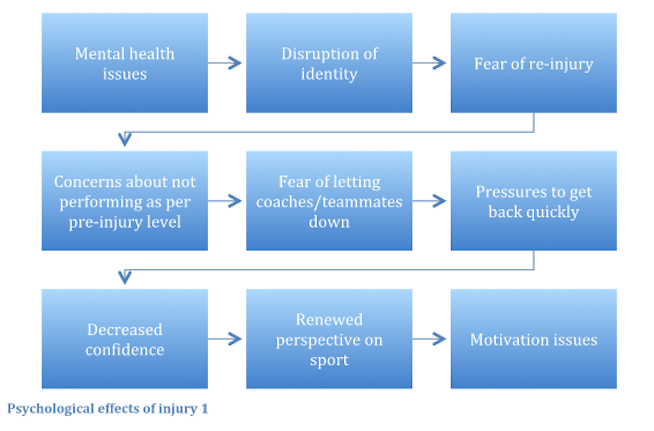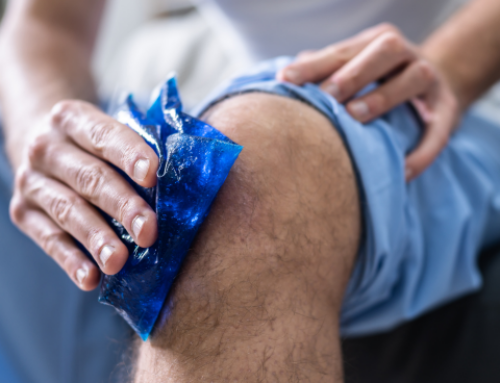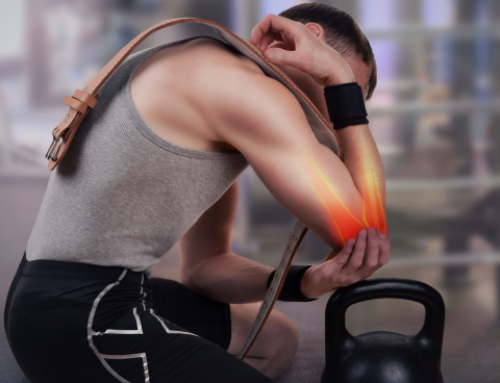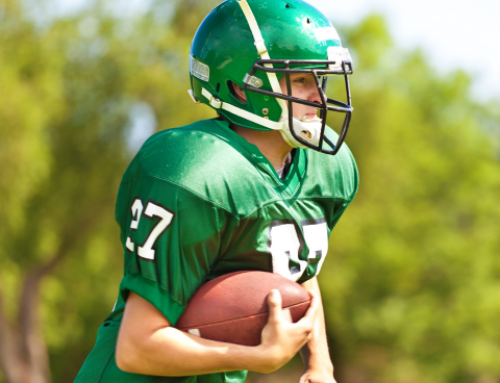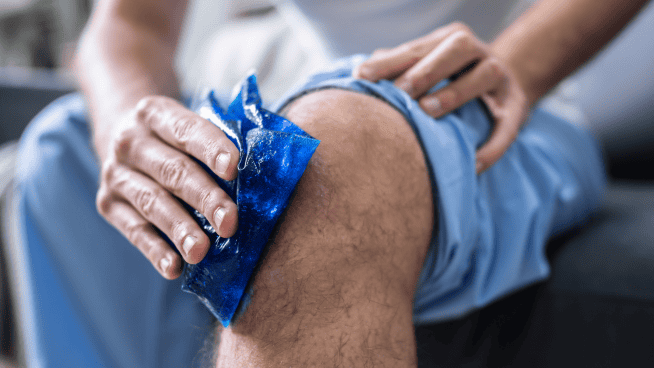The Mental Side of Recovering From an Injury
As a sports medicine physiotherapist clinician, I treat many recreational and professional athletes every day. I can’t help but feel the psychological aspects of an injury are often grossly underestimated and overlooked.
For me to help an athlete get back to performing at their pre-injury levels, the incorporation of a complete progressive bio/psycho/social model of care is integral to a rehabilitation regimen. In essence, one must understand the timeline and functionally based objectives to hit throughout rehab (bio), understand the importance of the psychological effects of an injury and returning from it (psycho) and lastly, the social ramifications of getting back with a team (social).
This article will focus on the psychological effects that grow from an injury and create obstacles that one must overcome to get back to playing. Think about Texans defensive end Jadeveon Clowney. He came back at a higher level and seems to be showing no mental ill effects. Now he has to step up with teammate J.J. Watt out for the season. He looks ready for the challenge!
Let’s start with mental health issues. Denial, anxiety, depression, anger and poor mood can all manifest after an injury. Pain and lack of normal function naturally precipitate anxiety. Apprehension based on the uncertainty of what lies ahead also takes place. Stages of depression based on expectations of timing in relation to levels of recovery are natural here, which leads to a disruption of identity and altered self-concept. One loses identity if sports participation is removed from day to day elements (being “in-treatment” rather than playing with teammates). This could lead to a loss of confidence and feed the level of anxiety as it relates to returning to normality.
Fear of reinjury is natural but may indeed be of least concern unless there are ongoing setbacks in terms of recovery. If recovery goes to plan then any professional would put this out of their mind. Individuals such as jockeys, race car and motorcycle drivers get straight back into it (back on their horse if you will!) and must put this out of their minds otherwise there could be a huge drop-off in performance. This is clearly distinguishable from a “normal” person or amateur since their livelihood does not depend on it; they are less likely to have the mental capacity to put this out of their mind.
It is very common that after one suffers an injury, they may have reservations as to whether they can return to performance at least to their pre-injury level, and this can affect confidence. How smoothly the rehab process goes is crucial here but also the determined mental state of the athlete.
A huge pressure on any athlete as they recover from a debilitating injury is to meet a specific return deadline. Fear of letting teammates and coaches down can feed into negative cognitive and emotional appraisals. One could argue that this is more important even than the physical side of recovering from an injury. This external independent element could be the root cause of several of the issues highlighted here versus originating internally in the injured athlete.
Adherence and motivation issues can sometimes rear their head and this is where constant positive energy and encouragement from the medical team around the athlete is so important. This is the lifeblood of a healthy rehab process.
Lastly, injury can even give one a renewed perspective on sport—let’s mention the concussion epidemic in rugby and pro football. It’s fair to say that sometimes a health risk of repeated head trauma can cause an athlete to quit that sport and try something else.
It may be fair to presume that mental issues are probably apparent pre-injury and post-injury, but may be exasperated in both directions when injured. If one plays a sport in a way that they’re always thinking about getting injured, the elements listed above will be heightened after an injury.
Of course, the opposite may be true if one participates in a sport with little concern or expectation of injury. Maybe you can achieve more. The exception that we can clearly see today is Tiger Woods. His mental capacity in the way he played was arguably way beyond any other player in the history of the sport. However, he represents the best example of going from that level of mental strength to exhibiting virtually all of the mental issues and others on the list below. What could he do to regain that impenetrable mental strength that he once had in abundance?
It’s justifiable that all these psychological effects of injury bear fruit for different people at different times, but adopting a positive and energetic mindset is the bedrock for a healthy and functionally optimal return to sport and ultimately performance. A supporting family and multidisciplinary medical staff around the athlete is of paramount importance to help continue and emphasize progressions along the rehab paradigm. Each of these effects is an obstacle to be overcome.
Here are some tips to counter these issues that often come to the fore:
-
Understand the process and rehab pathway with realistic goals.
-
Select carefully your medical support and environment.
-
Focus on the short-term functional objectives; these will help with the long-term objectives.
-
Practice mindfulness and meditation to center and ground yourself.
-
Hydrate and eat nutrient-dense foods and supplement wisely.
-
Exercise is medicine. Think of brain endorphin release like an opiate.
-
Recover adequately after each rehab session with sleep and relaxation time.
-
Push yourself wisely as tolerable from a pain perspective.
-
Don’t be fixated on timeline-based objectives but rather functional landmarks (safe to come off crutches when there is no swelling on your knee, terminal extension can be achieved at the knee joint, adequate tone as examples for post-operative knee care).
-
Communicate your feelings through the entire graduated process.
READ MORE:
RECOMMENDED FOR YOU
MOST POPULAR
The Mental Side of Recovering From an Injury
As a sports medicine physiotherapist clinician, I treat many recreational and professional athletes every day. I can’t help but feel the psychological aspects of an injury are often grossly underestimated and overlooked.
For me to help an athlete get back to performing at their pre-injury levels, the incorporation of a complete progressive bio/psycho/social model of care is integral to a rehabilitation regimen. In essence, one must understand the timeline and functionally based objectives to hit throughout rehab (bio), understand the importance of the psychological effects of an injury and returning from it (psycho) and lastly, the social ramifications of getting back with a team (social).
This article will focus on the psychological effects that grow from an injury and create obstacles that one must overcome to get back to playing. Think about Texans defensive end Jadeveon Clowney. He came back at a higher level and seems to be showing no mental ill effects. Now he has to step up with teammate J.J. Watt out for the season. He looks ready for the challenge!
Let’s start with mental health issues. Denial, anxiety, depression, anger and poor mood can all manifest after an injury. Pain and lack of normal function naturally precipitate anxiety. Apprehension based on the uncertainty of what lies ahead also takes place. Stages of depression based on expectations of timing in relation to levels of recovery are natural here, which leads to a disruption of identity and altered self-concept. One loses identity if sports participation is removed from day to day elements (being “in-treatment” rather than playing with teammates). This could lead to a loss of confidence and feed the level of anxiety as it relates to returning to normality.
Fear of reinjury is natural but may indeed be of least concern unless there are ongoing setbacks in terms of recovery. If recovery goes to plan then any professional would put this out of their mind. Individuals such as jockeys, race car and motorcycle drivers get straight back into it (back on their horse if you will!) and must put this out of their minds otherwise there could be a huge drop-off in performance. This is clearly distinguishable from a “normal” person or amateur since their livelihood does not depend on it; they are less likely to have the mental capacity to put this out of their mind.
It is very common that after one suffers an injury, they may have reservations as to whether they can return to performance at least to their pre-injury level, and this can affect confidence. How smoothly the rehab process goes is crucial here but also the determined mental state of the athlete.
A huge pressure on any athlete as they recover from a debilitating injury is to meet a specific return deadline. Fear of letting teammates and coaches down can feed into negative cognitive and emotional appraisals. One could argue that this is more important even than the physical side of recovering from an injury. This external independent element could be the root cause of several of the issues highlighted here versus originating internally in the injured athlete.
Adherence and motivation issues can sometimes rear their head and this is where constant positive energy and encouragement from the medical team around the athlete is so important. This is the lifeblood of a healthy rehab process.
Lastly, injury can even give one a renewed perspective on sport—let’s mention the concussion epidemic in rugby and pro football. It’s fair to say that sometimes a health risk of repeated head trauma can cause an athlete to quit that sport and try something else.
It may be fair to presume that mental issues are probably apparent pre-injury and post-injury, but may be exasperated in both directions when injured. If one plays a sport in a way that they’re always thinking about getting injured, the elements listed above will be heightened after an injury.
Of course, the opposite may be true if one participates in a sport with little concern or expectation of injury. Maybe you can achieve more. The exception that we can clearly see today is Tiger Woods. His mental capacity in the way he played was arguably way beyond any other player in the history of the sport. However, he represents the best example of going from that level of mental strength to exhibiting virtually all of the mental issues and others on the list below. What could he do to regain that impenetrable mental strength that he once had in abundance?
It’s justifiable that all these psychological effects of injury bear fruit for different people at different times, but adopting a positive and energetic mindset is the bedrock for a healthy and functionally optimal return to sport and ultimately performance. A supporting family and multidisciplinary medical staff around the athlete is of paramount importance to help continue and emphasize progressions along the rehab paradigm. Each of these effects is an obstacle to be overcome.
Here are some tips to counter these issues that often come to the fore:
-
Understand the process and rehab pathway with realistic goals.
-
Select carefully your medical support and environment.
-
Focus on the short-term functional objectives; these will help with the long-term objectives.
-
Practice mindfulness and meditation to center and ground yourself.
-
Hydrate and eat nutrient-dense foods and supplement wisely.
-
Exercise is medicine. Think of brain endorphin release like an opiate.
-
Recover adequately after each rehab session with sleep and relaxation time.
-
Push yourself wisely as tolerable from a pain perspective.
-
Don’t be fixated on timeline-based objectives but rather functional landmarks (safe to come off crutches when there is no swelling on your knee, terminal extension can be achieved at the knee joint, adequate tone as examples for post-operative knee care).
-
Communicate your feelings through the entire graduated process.
READ MORE:

